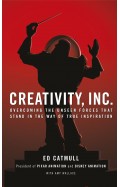- Home
- Books
- Categories
- Non Fiction
- Business & Management
- Fully Connected: Surviving and Thriving in an Age of Overload
Fully Connected: Surviving and Thriving in an Age of Overload
By: Julia Hobsbawm
-
Rs 1,212.75
- Rs 2,695.00
- 55%
You save Rs 1,482.25.
Due to constant currency fluctuation, prices are subject to change with or without notice.
In 1946, the World Health Organization defined health as: "a state of complete physical, mental, and social well-being, and not merely the absence of disease or infirmity." Until now, no one has defined this third dimension to health, or described strategies to deliver it. This ground-breaking book is the first to do so.
Twenty-five years after the arrival of the Internet, we are drowning in data and deadlines; we can never have imagined that our daily intake of information and achieving a healthy balance in our personal and professional lives could feel so complex and so unhealthy. In recent years, organizations have come a long way towards promoting health literacy (on obesity, smoking, diet, and exercise) and some way in acknowledging mental health issues. But acknowledging the challenges of the Internet and social media on employee and workplace health is the social element, and most have not yet begun to offer solutions around either better information and knowledge management, or developing better and more sustaining relationships.
The challenges, threats, and opportunities of a "perma-connected" global economy and society could not be greater-and they will only increase. This is the first book to define what social health means in both society and the modern workplace. Here, Julia Hobsbawm argues that developing social health will help employees become more efficiently engaged with each other and their work, and help employers to create workplaces that support social health and thus greater productivity.
By utilizing the latest thinking in health and behavioral economics, social psychology, neuroscience, management, and social network analysis, Fully Connected will provide a blueprint for how to use social health to foster well-being and productivity.
In 1946, the World Health Organization defined health as: "a state of complete physical, mental, and social well-being, and not merely the absence of disease or infirmity." Until now, no one has defined this third dimension to health, or described strategies to deliver it. This ground-breaking book is the first to do so.
Twenty-five years after the arrival of the Internet, we are drowning in data and deadlines; we can never have imagined that our daily intake of information and achieving a healthy balance in our personal and professional lives could feel so complex and so unhealthy. In recent years, organizations have come a long way towards promoting health literacy (on obesity, smoking, diet, and exercise) and some way in acknowledging mental health issues. But acknowledging the challenges of the Internet and social media on employee and workplace health is the social element, and most have not yet begun to offer solutions around either better information and knowledge management, or developing better and more sustaining relationships.
The challenges, threats, and opportunities of a "perma-connected" global economy and society could not be greater-and they will only increase. This is the first book to define what social health means in both society and the modern workplace. Here, Julia Hobsbawm argues that developing social health will help employees become more efficiently engaged with each other and their work, and help employers to create workplaces that support social health and thus greater productivity.
By utilizing the latest thinking in health and behavioral economics, social psychology, neuroscience, management, and social network analysis, Fully Connected will provide a blueprint for how to use social health to foster well-being and productivity.
Fully Connected Surviving and Thriving in an Age of Overload
By: Julia Hobsbawm
Rs 537.75 Rs 1,195.00 Ex Tax :Rs 537.75
Fully Connected: Surviving and Thriving in an Age of Overload
By: Julia Hobsbawm
Rs 1,212.75 Rs 2,695.00 Ex Tax :Rs 1,212.75
Zubin Mehta: A Musical Journey (An Authorized Biography)
By: VOID - Bakhtiar K. Dadabhoy
Rs 472.50 Rs 1,050.00 Ex Tax :Rs 472.50
The 4 Hour Work Week Escape The 9 5 Live Anywhere And Join The New Rich
By: Timothy Ferriss
Rs 2,695.50 Rs 2,995.00 Ex Tax :Rs 2,695.50
What They Dont Teach You at Harvard Business School: Notes from a StreetSmart Executive
By: Mark H. Mccormack
Rs 3,415.50 Rs 3,795.00 Ex Tax :Rs 3,415.50
The Lean Startup How Constant Innovation Creates Radically Successful Businesses
By: Eric Ries
Rs 3,415.50 Rs 3,795.00 Ex Tax :Rs 3,415.50
Great By Choice: Uncertainty Chaos And Luck Why Some Thrive Despite Them All
By: Jim Collins
Rs 5,395.50 Rs 5,995.00 Ex Tax :Rs 5,395.50
Like A Virgin Secrets They Wont Teach You at Business School - (PB)
By: Sir Richard Branson
Rs 762.75 Rs 1,695.00 Ex Tax :Rs 762.75
Creativity, Inc.: Overcoming the Unseen Forces That Stand in the Way of True Inspiration
By: Ed Catmull
Rs 3,595.50 Rs 3,995.00 Ex Tax :Rs 3,595.50
The Everything Store Jeff Bezos and the Age of Amazon
By: Brad Stone
Rs 1,231.75 Rs 1,895.00 Ex Tax :Rs 1,231.75
No similar books from this author available at the moment.
No recently viewed books available at the moment.
Zubin Mehta: A Musical Journey (An Authorized Biography)
By: VOID - Bakhtiar K. Dadabhoy
Rs 472.50 Rs 1,050.00 Ex Tax :Rs 472.50
Fully Connected Surviving and Thriving in an Age of Overload
By: Julia Hobsbawm
Rs 537.75 Rs 1,195.00 Ex Tax :Rs 537.75
Fully Connected: Surviving and Thriving in an Age of Overload
By: Julia Hobsbawm
Rs 1,212.75 Rs 2,695.00 Ex Tax :Rs 1,212.75












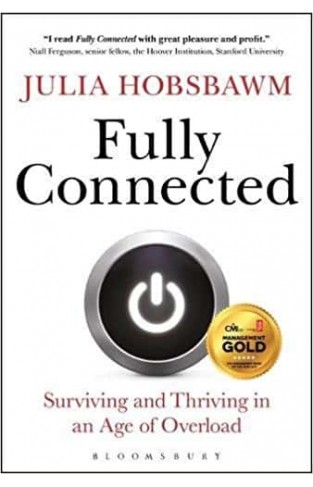
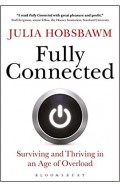
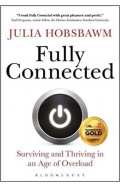
-120x187.jpg?q6)







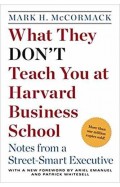
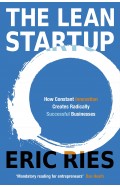
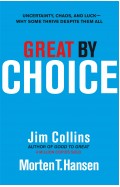
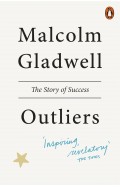
-120x187.jpg?q6)
